Product Description
Key attributes of Customized Machining Service Irregular Automobile Motor Pin Shaft Customized Small Axle
Industry-specific attributes of Customized Machining Service Irregular Automobile Motor Pin Shaft Customized Small Axle
| CNC Machining or Not | Cnc Machining |
| Material Capabilities | Aluminum, Brass, Bronze, Copper, Hardened Metals, Precious Metals, Stainless steel, Steel Alloys |
Other attributes of Customized Machining Service Irregular Automobile Motor Pin Shaft Customized Small Axle
| Place of Origin | ZheJiang , China |
| Type | Broaching, DRILLING, Etching / Chemical Machining, Laser Machining, Milling, Other Machining Services, Turning, Wire EDM |
| Model Number | OEM |
| Brand Name | OEM |
| Material | Metal |
| Process | Cnc Machining+deburrs |
| Surface treatment | Customer’s Request |
| Equipment | CNC Machining Centres / Core moving machine / precision lathe / Automatic loading and unloading equipment |
| Processing Type | Milling / Turning / Stamping |
| OEM/ODM | OEM & ODM CNC Milling Turning Machining Service |
| Drawing Format | 2D/(PDF/CAD)3D(IGES/STEP) |
| Our Service | OEM ODM Customers’drawing |
| Materials Avaliable | Stainless Steel / Aluminum / Metals / Copper / Plastic |
Best Seller of 304 Stainless Steel Polishing Finishing CNC Machining Bracket for Laser Cutting
About YiSheng
| Business Type | Factory / Manufacturer |
| Service | CNC Machining |
| Turning and Milling | |
| CNC Turning | |
| OEM Parts | |
| Material | 1). Aluminum: AL 6061-T6, 6063, 7075-T etc |
| 2). Stainless steel: 303,304,316L, 17-4(SUS630) etc | |
| 3). Steel: 4140, Q235, Q345B,20#,45# etc. | |
| 4). Titanium: TA1,TA2/GR2, TA4/GR5, TC4, TC18 etc | |
| 5). Brass: C36000 (HPb62), C37700 (HPb59), C26800 (H68), C22000(H90) etc | |
| 6). Copper, bronze, Magnesium alloy, Delrin, POM,Acrylic, PC, etc. | |
| Finish | Sandblasting, Anodize color, Blackenning, Zinc/Nickl Plating, Polish, |
| Power coating, Passivation PVD, Titanium Plating, Electrogalvanizing, | |
| electroplating chromium, electrophoresis, QPQ(Quench-Polish-Quench), | |
| Electro Polishing,Chrome Plating, Knurl, Laser etch Logo, etc. | |
| Main Equipment | CNC Machining center, CNC Lathe, precision lathe |
| Automatic loading and unloading equipment | |
| Core moving machine | |
| Drawing format | STEP,STP,GIS,CAD,PDF,DWG,DXF etc or samples. |
| Tolerance | +/-0.001mm ~ +/-0.05mm |
| Surface roughness | Ra 0.1~3.2 |
| Test Equipment | Complete test lab with Projector, High-low temperature test chamber, Tensile tester Gauge, Salt fog test |
| Inspection | Complete inspection lab with Micrometer, Optical Comparator, Caliper Vernier,CMM |
| Depth Caliper Vernier, Universal Protractor, Clock Gauge | |
| Capacity | CNC turning work range: φ0.5mm-φ150mm*300mm |
| CNC center work range: 510mm*850mm*500mm | |
| Core moving machine work range: φ32mm*85mm | |
| Gerenal Tolerance: (+/-mm) |
CNC Machining: 0.005 |
| Core moving: 0.005 | |
| Turning: 0.005 | |
| Grinding(Flatness/in2): 0.003 | |
| ID/OD Grinding: 0.002 | |
| Wire-Cutting: 0.002 |
RFQ of Customized Machining Service Irregular Automobile Motor Pin Shaft Customized Small Axle /* January 22, 2571 19:08:37 */!function(){function s(e,r){var a,o={};try{e&&e.split(“,”).forEach(function(e,t){e&&(a=e.match(/(.*?):(.*)$/))&&1
| After-sales Service: | Y |
|---|---|
| Warranty: | Negotiate |
| Condition: | New |
| Customization: |
Available
| Customized Request |
|---|
.shipping-cost-tm .tm-status-off{background: none;padding:0;color: #1470cc}
|
Shipping Cost:
Estimated freight per unit. |
about shipping cost and estimated delivery time. |
|---|
| Payment Method: |
|
|---|---|
|
Initial Payment Full Payment |
| Currency: | US$ |
|---|
| Return&refunds: | You can apply for a refund up to 30 days after receipt of the products. |
|---|
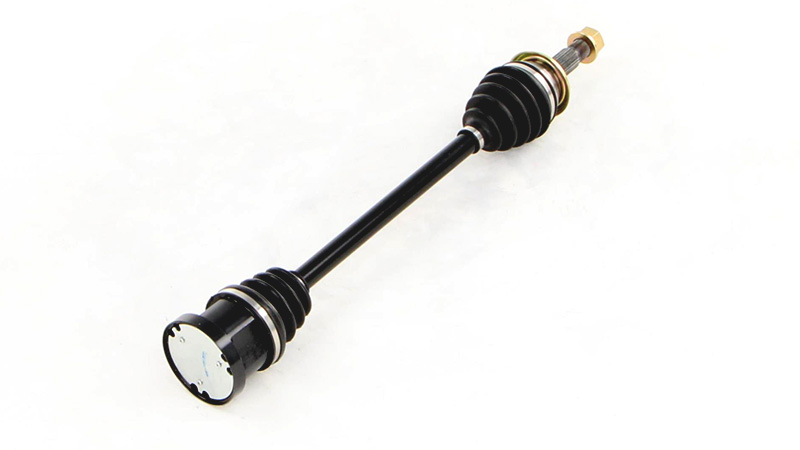
Can you provide insights into the maintenance of axle bearings for smooth operation?
Maintaining axle bearings is essential for ensuring smooth operation, longevity, and optimal performance of a vehicle’s axle system. Here are some insights into the maintenance of axle bearings:
1. Regular Inspection:
Perform regular visual inspections of the axle bearings to check for any signs of wear, damage, or leaks. Look for indications such as excessive play, unusual noises, vibration, or leakage of grease. Inspections should be carried out as per the manufacturer’s recommended intervals or during routine maintenance checks.
2. Lubrication:
Adequate lubrication is crucial for the smooth operation of axle bearings. Follow the manufacturer’s guidelines for the type of lubricant to use and the recommended intervals for greasing. Over-greasing or under-greasing can lead to bearing damage or failure. Ensure that the proper amount of grease is applied to the bearings, and use a high-quality grease that is compatible with the axle bearing specifications.
3. Seal Inspection and Replacement:
Check the condition of the axle bearing seals regularly. The seals help to keep contaminants out and retain the lubricating grease within the bearing. If the seals are damaged, worn, or show signs of leakage, they should be replaced promptly to prevent dirt, water, or debris from entering the bearing assembly and causing damage.
4. Proper Installation:
During axle bearing replacement or installation, it is crucial to follow proper procedures to ensure correct seating and alignment. Improper installation can lead to premature bearing failure and other issues. Refer to the manufacturer’s instructions or consult a professional mechanic to ensure proper installation techniques are followed.
5. Load Capacity and Alignment:
Ensure that the axle bearings are properly sized and rated to handle the load capacity of the vehicle and the specific application. Overloading the bearings can lead to excessive wear and premature failure. Additionally, proper wheel alignment is important to prevent uneven bearing wear. Regularly check and adjust the wheel alignment if necessary.
6. Environmental Considerations:
Take into account the operating conditions and environment in which the vehicle is used. Extreme temperatures, exposure to water, dirt, or corrosive substances can affect the performance of axle bearings. In such cases, additional preventive measures may be necessary, such as more frequent inspections, cleaning, and lubrication.
7. Professional Maintenance:
If you are unsure about performing maintenance on axle bearings yourself or if you encounter complex issues, it is recommended to seek assistance from a qualified mechanic or technician who has experience with axle systems. They can provide expert advice, perform necessary repairs or replacements, and ensure proper maintenance of the axle bearings.
By following these maintenance insights, you can help ensure the smooth operation, longevity, and reliability of axle bearings, contributing to the overall performance and safety of the vehicle.
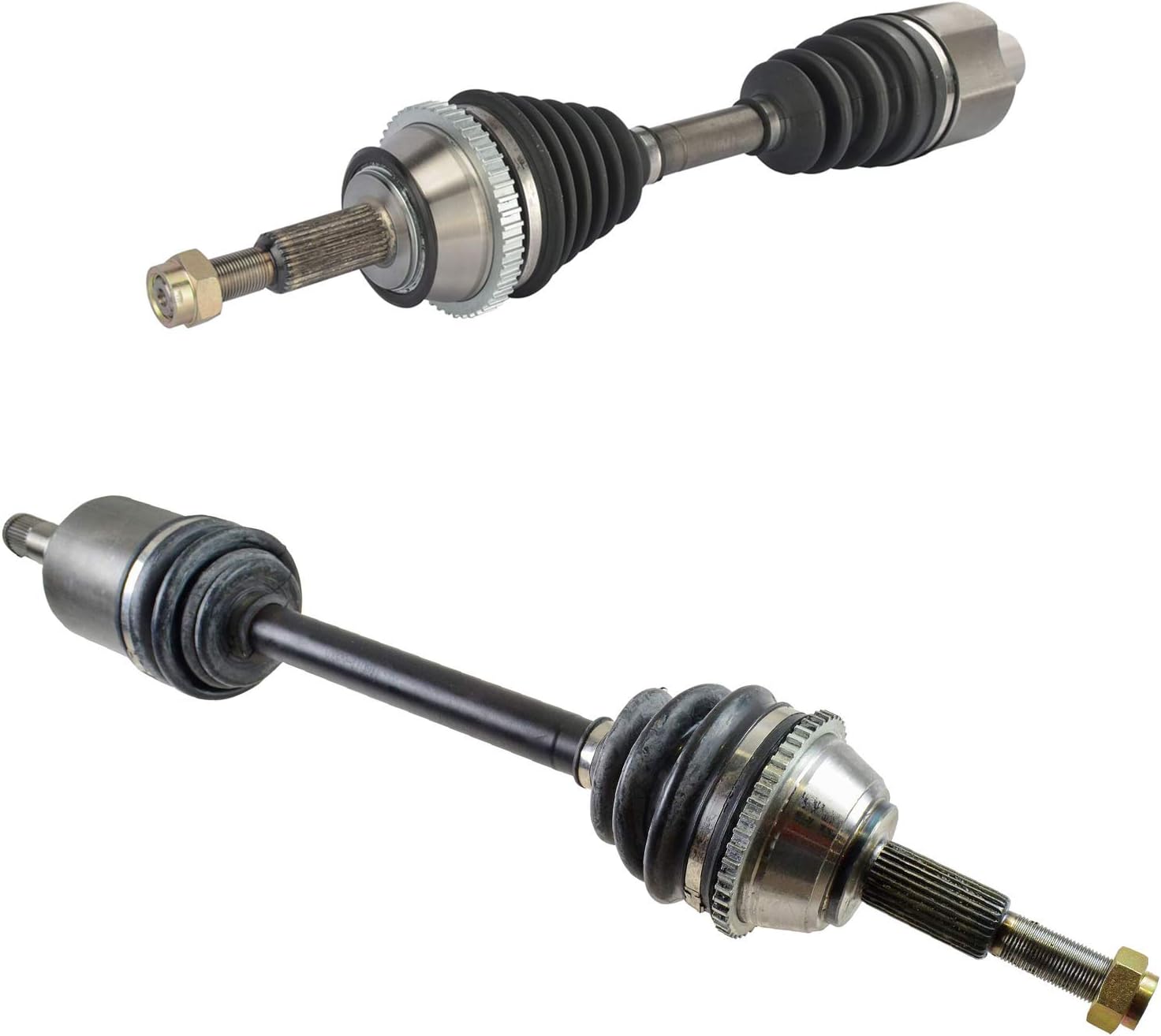
Are there specific maintenance tips to extend the lifespan of my vehicle’s axles?
Maintaining the axles of your vehicle is crucial for ensuring their longevity, performance, and overall safety. Here are some specific maintenance tips to extend the lifespan of your vehicle’s axles:
- Regular Inspection:
- Lubrication:
- Seal Inspection and Replacement:
- Proper Loading and Towing:
- Driving Techniques:
- Regular Wheel Alignment:
- Proper Tire Inflation:
- Service Intervals:
Perform regular visual inspections of the axles to check for any signs of damage, leaks, or excessive wear. Look for cracks, bends, or rust on the axle housing, and inspect the axle shafts, seals, and boots. Early detection of issues can help prevent further damage and costly repairs.
Follow the manufacturer’s recommendations for axle lubrication. Proper lubrication helps reduce friction and wear on the axle components. Regularly check the axle’s lubricant level and quality, and replace it as necessary. Use the recommended lubricant type and viscosity for your specific axle.
Check the axle seals for any signs of leaks, such as fluid accumulation around the axle ends. Leaking seals can allow contaminants to enter the axle assembly, leading to premature wear and damage. Replace worn or damaged seals promptly to maintain proper lubrication and prevent contamination.
Ensure that you do not exceed the weight capacity of your vehicle’s axles. Overloading or towing beyond the recommended limits can put excessive stress on the axles, leading to premature wear or failure. Be mindful of the payload and towing capacity specified by the vehicle manufacturer.
Adopt proper driving techniques to minimize stress on the axles. Avoid sudden acceleration, aggressive cornering, and harsh braking, as these actions can subject the axles to excessive forces. Additionally, be cautious when driving over rough terrain or obstacles to prevent impacts that could damage the axles.
Maintain proper wheel alignment to prevent excessive strain on the axles. Misaligned wheels can put uneven loads on the axles, leading to accelerated wear. Regularly check and adjust the wheel alignment as per the manufacturer’s recommendations.
Ensure that your vehicle’s tires are properly inflated according to the recommended tire pressure. Underinflated or overinflated tires can affect the load distribution on the axles and increase the risk of axle damage. Regularly check and maintain the correct tire pressure.
Follow the recommended service intervals for your vehicle, which may include axle inspections, lubricant changes, and other maintenance tasks. Adhering to these intervals ensures that the axles are properly maintained and any potential issues are addressed in a timely manner.
It’s important to consult your vehicle’s owner’s manual for specific maintenance guidelines and intervals provided by the manufacturer. Additionally, if you notice any unusual noises, vibrations, or handling issues related to the axles, it is advisable to have your vehicle inspected by a qualified mechanic to identify and address any potential axle problems promptly.

What are the signs of a worn or failing axle, and how can I troubleshoot axle issues?
Identifying the signs of a worn or failing axle is important for maintaining the safety and functionality of your vehicle. Here are some common signs to look out for and troubleshooting steps you can take to diagnose potential axle issues:
- Unusual Noises:
- Vibrations:
- Uneven Tire Wear:
- Difficulty Steering:
- Visible Damage or Leaks:
- Professional Inspection:
If you hear clunking, clicking, or grinding noises coming from the area around the wheels, it could indicate a problem with the axle. These noises may occur during acceleration, deceleration, or when turning. Troubleshoot by listening carefully to the location and timing of the noises to help pinpoint the affected axle.
A worn or failing axle can cause vibrations that can be felt through the steering wheel, floorboard, or seat. These vibrations may occur at certain speeds or during specific driving conditions. If you experience unusual vibrations, it’s important to investigate the cause, as it could be related to axle problems.
Inspect your tires for uneven wear patterns. Excessive wear on the inner or outer edges of the tires can be an indication of axle issues. Misaligned or damaged axles can cause the tires to tilt, leading to uneven tire wear. Regularly check your tires for signs of wear and take note of any abnormalities.
A worn or damaged axle can affect steering performance. If you experience difficulty in steering, such as stiffness, looseness, or a feeling of the vehicle pulling to one side, it may be due to axle problems. Pay attention to any changes in steering responsiveness and address them promptly.
Inspect the axles visually for any signs of damage or leaks. Look for cracks, bends, or visible fluid leaks around the axle boots or seals. Damaged or leaking axles can lead to lubrication loss and accelerated wear. If you notice any visible issues, it’s important to have them inspected and repaired by a qualified mechanic.
If you suspect axle issues but are unsure about the exact cause, it’s advisable to seek a professional inspection. A qualified mechanic can perform a thorough examination of the axles, suspension components, and related systems. They have the expertise and tools to diagnose axle problems accurately and recommend the appropriate repairs.
It’s important to note that troubleshooting axle issues can sometimes be challenging, as symptoms may overlap with other mechanical problems. If you’re uncertain about diagnosing or repairing axle issues on your own, it’s recommended to consult a professional mechanic. They can provide a proper diagnosis, ensure the correct repairs are performed, and help maintain the safety and performance of your vehicle.


editor by CX 2024-04-04
China Standard American Type Axle Outboard Axle Semi Trailer Axle CZPT Axle Rear Axle for Trailer Part and Truck Part axle shaft
Product Description
Trailer parts American type 16t semi trailer axle
| Axle-Inboard Drum Series Specifications | |||||||||||||
| Axle Type | Max. Capacity(T) |
Track (mm) |
Brake(mm) | Bearing | (Spring Seat Installation) |
Axle Beam (mm) |
Centre Distance Of Brake Chamber(mm) |
Wheel Fixing | Total Length (mm) |
Recommended Wheel |
Axle Weight (kg) |
||
| Stud | P.C.D(mm) | H(mm) | |||||||||||
| JSS13F1B10 | 13 | 2420 | φ420×180 | HM518445/10 | ≥ 1510 | 150 |
787 |
10×M22×1.5 ISO |
335 |
280.8 |
~ 2526 |
7.5V-20 |
380 |
Note:
1. Track length L2 is optional
2. Available with ABS system
3. Automatic slack adjuster is optional
ZheJiang CZPT Axle Manufacturing Co., Ltd., founded in 2000, is a professional manufacturer of trailer axle assemblies, semi-trailer suspension systems and correlative fittings in China. We are located in Quanpu Industry Zone which is the largest production base of trailers in China, in Xihu (West Lake) Dis., the famous scenic spot. We are 1 of specialized enterprises in the scientific research, design, production and sale, with more than 300 skilled employees and professional designers for different areas. We adopt the domestic and international technical standards in production, accurately grasp the information of the market demand and make quick and optimal designs. In this way, our axle, suspension and other fittings have the world-class technical quality through reasonable and advanced manufacture technologies. Our advanced processing technology, first-class production line and precision CNC machining equipment from home and abroad ensure the good quality of our semi-trailer axle assemblies, suspension systems and other correlative fittings. At the same time, our annual capacity for the export of American and German semi-trailer axle assemblies has achieved 60, 000 pieces and of suspension assemblies has achieved 50, 000 sets. We obtained the ISO9001: 2000 International Quality Management System Certification in 2003 and TS16949 Certification in 2007. “First-class product quality, the meticulous and thoughtful service, and CZPT cooperation” is the philosophy that we always cherish. We not only meet the domestic market demand, but also export our products to Southeast Asia, the Middle East, Latin America and other countries, enjoying a good reputation. We always regard quality as life, and client as God. We will create a brilliant tomorrow with your sincere cooperation and support. 1. What’s your advantage?
First we are manufacturer, we own professinal technology & quality control team; excellent team for foreign trade plus a rich expertise in trading.
2. What kinds of mainly products do you manufacture?
We are a professional manufacturer of trailer axle assemblies, semi-trailer suspension systems and correlative fittings in China.
3. Can you send me samples for testing?
Certainly! We’d like to provide the samples free of charge, but for the freight, pls kindly bear it.
4. How long do you finish a mew product?
Usually 20~35days once all information confirmed.
/* January 22, 2571 19:08:37 */!function(){function s(e,r){var a,o={};try{e&&e.split(“,”).forEach(function(e,t){e&&(a=e.match(/(.*?):(.*)$/))&&1
| After-sales Service: | 24 Hours Online |
|---|---|
| Condition: | New |
| Axle Number: | 2 |
| Application: | Trailer |
| Certification: | CE, ISO |
| Material: | Iron |
| Samples: |
US$ 500/Piece
1 Piece(Min.Order) | |
|---|
| Customization: |
Available
| Customized Request |
|---|
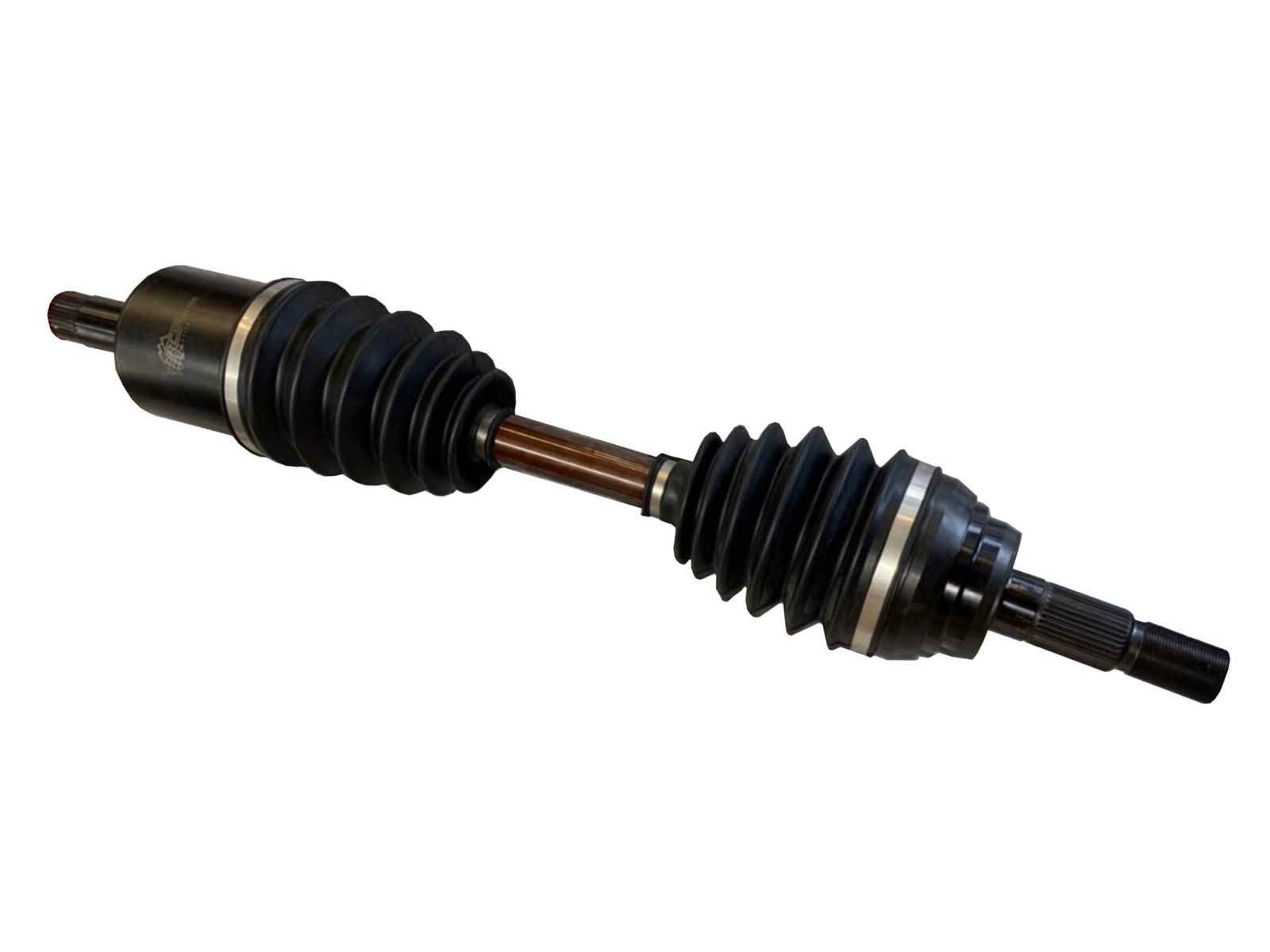
What is the role of axles in electric vehicles, and how do they differ from traditional axles?
Electric vehicles (EVs) have unique requirements when it comes to their drivetrain systems, including the axles. The role of axles in EVs is similar to traditional vehicles, but there are some key differences. Here’s a detailed explanation of the role of axles in electric vehicles and how they differ from traditional axles:
Role of Axles in Electric Vehicles:
The primary role of axles in electric vehicles is to transmit torque from the electric motor(s) to the wheels, enabling vehicle propulsion. The axles connect the motor(s) to the wheels and provide support for the weight of the vehicle. Axles are responsible for transferring the rotational force generated by the electric motor(s) to the wheels, allowing the vehicle to move forward or backward.
In electric vehicles, the axles are an integral part of the drivetrain system, which typically includes an electric motor(s), power electronics, and a battery pack. The axles play a crucial role in ensuring efficient power transfer and delivering the desired performance and handling characteristics of the vehicle.
Differences from Traditional Axles:
While the fundamental role of axles in electric vehicles is the same as in traditional vehicles, there are some notable differences due to the unique characteristics of electric propulsion systems:
1. Integration with Electric Motors: In electric vehicles, the axles are often integrated with the electric motors. This means that the motor(s) and axle assembly are combined into a single unit, commonly referred to as an “electric axle” or “e-axle.” This integration helps reduce the overall size and weight of the drivetrain system and simplifies installation in the vehicle.
2. High Torque Requirements: Electric motors generate high amounts of torque from the moment they start, providing instant acceleration. As a result, axles in electric vehicles need to handle higher torque loads compared to traditional axles. They are designed to withstand the torque output of the electric motor(s) and efficiently transmit it to the wheels.
3. Regenerative Braking: Electric vehicles often utilize regenerative braking, which converts the vehicle’s kinetic energy into electrical energy and stores it in the battery. The axles in electric vehicles may incorporate systems or components that enable regenerative braking, such as sensors, controllers, and electric brake actuators.
4. Space Optimization: Electric vehicles often have different packaging requirements compared to traditional internal combustion engine vehicles. The axles in electric vehicles are designed to accommodate the space constraints and specific layout of the vehicle, considering the placement of the battery pack, electric motor(s), and other components.
5. Weight Considerations: Electric vehicles strive to optimize weight distribution to enhance efficiency and handling. Axles in electric vehicles may be designed with lightweight materials or innovative construction techniques to minimize weight while maintaining structural integrity and durability.
It’s important to note that the specific design and characteristics of axles in electric vehicles can vary depending on the vehicle manufacturer, drivetrain configuration (e.g., front-wheel drive, rear-wheel drive, all-wheel drive), and other factors. Automotive manufacturers and suppliers continually innovate and develop new axle technologies to meet the evolving demands of electric vehicle propulsion systems.

What is the difference between front and rear axles in a typical vehicle?
In a typical vehicle, there are distinct differences between the front and rear axles due to their respective roles and functions. Here are the key differences:
- Position:
- Steering:
- Driving:
- Suspension:
- Load Distribution:
- Driving Characteristics:
The main difference between the front and rear axles is their position in the vehicle. The front axle is located in the front of the vehicle, while the rear axle is positioned at the rear. This positioning is determined by the vehicle’s drivetrain configuration.
The front axle is responsible for steering the vehicle. It is connected to the steering system, allowing the driver to control the direction of the vehicle. The front axle typically includes components such as steering knuckles, tie rods, and steering linkages.
The rear axle is primarily responsible for driving the vehicle’s wheels. It receives power from the engine through the transmission or differential and transfers that power to the rear wheels. The rear axle may include components such as axle shafts, differential gears, and wheel hubs.
Both the front and rear axles play a role in the vehicle’s suspension system, but their configurations and functions differ. The front axle typically incorporates suspension components such as control arms, struts, or independent suspension systems to provide better handling, stability, and ride comfort. The rear axle may have a solid axle setup or independent suspension depending on the vehicle’s design.
The load distribution on the front and rear axles varies. In a typical vehicle, the front axle carries the weight of the engine, transmission, and a portion of the vehicle’s weight due to the front-end weight bias. The rear axle bears the weight of the vehicle’s occupants, cargo, and a portion of the vehicle’s weight. This distribution helps maintain proper balance and stability during acceleration, braking, and cornering.
The differences between the front and rear axles can influence the vehicle’s driving characteristics. The front axle’s role in steering affects the vehicle’s maneuverability and responsiveness. The rear axle’s responsibility for driving the wheels affects traction, acceleration, and stability, particularly in rear-wheel drive or four-wheel drive vehicles.
It’s important to note that the specific configurations and characteristics of front and rear axles can vary depending on the vehicle’s make, model, and drivetrain system. Different types of vehicles, such as front-wheel drive, rear-wheel drive, or all-wheel drive, may have variations in axle design and functionality.
Understanding the differences between the front and rear axles is essential for proper maintenance, repairs, and modifications of the vehicle’s drivetrain and suspension systems. If you have specific questions about your vehicle’s axles, it’s recommended to consult your vehicle’s owner’s manual or seek advice from qualified mechanics or automotive professionals.

Are there aftermarket axles available for upgrading performance in off-road vehicles?
Yes, there are aftermarket axles available for upgrading performance in off-road vehicles. Off-road enthusiasts often seek aftermarket axle options to enhance the durability, strength, and performance of their vehicles in rugged and demanding terrains. Here’s some information about aftermarket axles for off-road applications:
1. Upgraded Axle Materials:
Aftermarket axles are typically made from high-strength materials such as chromoly steel or forged alloys. These materials offer superior strength and durability compared to stock axles, making them better suited for off-road use where extreme loads, impacts, and torsional forces are encountered.
2. Increased Axle Shaft Diameter:
Some aftermarket axles feature larger diameter shafts compared to stock axles. This increased diameter helps improve the axle’s load-carrying capacity and resistance to bending or torsion. It can also enhance the overall durability and reliability of the axle in off-road conditions.
3. Upgraded Axle Splines:
Axles with upgraded splines are designed to handle higher torque loads. Aftermarket axles may feature larger and stronger splines, providing increased power transfer capabilities and reducing the risk of spline failure, which can occur in extreme off-road situations.
4. Locking Differentials:
Some aftermarket axle options include integrated locking differentials. Locking differentials improve off-road traction by mechanically locking both wheels on an axle together, ensuring that power is distributed evenly to both wheels. This feature can be advantageous in challenging off-road conditions where maximum traction is required.
5. Lifted Vehicle Compatibility:
Aftermarket axles are often designed to accommodate lifted vehicles. Lift kits that raise the suspension height can impact the axle’s operating angles. Aftermarket axles may offer increased articulation or modified geometry to maintain proper alignment and reduce the risk of binding or premature wear.
When considering aftermarket axles for off-road vehicles, it’s essential to choose options that are compatible with your specific vehicle make, model, and suspension setup. Working with reputable manufacturers, consulting with experienced off-road enthusiasts, or seeking advice from professional mechanics can help you select the most suitable aftermarket axle upgrades for your off-road needs.
Lastly, it’s important to keep in mind that upgrading axles alone may not be sufficient for maximizing off-road performance. Other components such as suspension, tires, differential gears, and drivetrain systems should be considered as part of a comprehensive off-road build to ensure optimal performance, reliability, and safety.


editor by CX 2024-04-03
China Customized Walking Speed Electric Motor Driving Wheelbarrow Machinery Rear Wheel Axles with 24V500w BLDC Motor and Split Gearbox axle shaft
Use: Trailer Elements
Components: Trailer Axles
OE NO.: MK
Max Payload: 5
One particular-Cease Support
Packaging & S750 48V 10KW H2o Sea Sporting activities RC Water-resistant Surf Board Thruster DC Brushless Rubber Boat Motor Shipping and delivery
one) We acknowledge ship your cargo by DHL, FEDEX, UPS, TNT,EMS Categorical Courier, or By Air,By Ship,other kind of shipping and delivery according to your requirements2) To Avoid any errors for supply,prior to cargo,kindly advise the element details about your Company Identify/Company Address/Postal Code/Phone&Mobile Variety/Email/Tax Amount/Get in touch with Man or woman Name,and so forth.3) We take wonderful treatment in packaging every single merchandise to make certain protected shipment to you.
Certifications
Company Information
Firm Profile
We,Michael Equipment,as a sub-business of CZPT Investment Group, is a proffessional spare elements supplier to all kinds of vehicles and equipment because 1990.
Once more,we are the leader of axle manufactor in China, 10 Inch 500W 60V Potent Dc Brushless Electric powered Wheel Hub Motor and maintain long-phrase cooperation with plenty of motor vehicle spare parts factories,we can give you one-cease obtain provider to total motor vehicle chassis spare areas,
” Reputable-High quality, Resonable-Value, Quick-Shipping ” is our services idea, after far more than thirty a long time improvements,we are the main supplier to car industries & reffitting factories at home and abroard,
Welcome to pay a visit to our factory for organization together.
FAQQ1. What is actually the MOQ? Can I acquire 1 sample for tests?A: Usually MOQ is 5-50 Piece to various components . We accept sample or trial purchase.Q2. Can you provide Free SAMPLE?A: Sorry, our sample plan is that you may pay for the sample and shipping and delivery cost 1st, and we will refund it when you purchase them in mass amount not considerably less than a hundred-1000pcs in accordance to MQO.Q3. What’s your supply time and shipping and delivery way?A: About 10-15days for sample supply time (By Express). twenty five-30 times for mass production or it is dependent on your buy quantity (By Sea or Air as you required)Q4. What provider can we provide?A: Recognized Shipping and delivery Conditions: FOB,CFR,CIF, SXIHU (WEST LAKE) DIS.NG MOT 24V Inrunner Underwater Stern Thruster DC Motor for RC Paddle Board Marine Truster EXW,CIP,DDP,DAF Accepted Payment Currency:USD,EUR Recognized Payment Type: T/T,L/C,D/P D/A,Credit rating Card,PayPal,Cash Language Spoken:English,ChineseQ5. How to get the suited elements for my autos, what must I do?A: You should send your car specifications in details,it is better to ship the parts picture and drawing or samples for our examining.
Q6. How can we promise good quality?A: Always a pre-manufacturing sample prior to mass generation
Always 100% examination to last Inspection before shipment.
What Is an Axle?
An axle is the central shaft of a vehicle that rotates a wheel or gear. It may be fixed to the wheels or to the vehicle itself, and can rotate with the wheels and gears. It may include bearings and mounting points. If the axle is fixed to the vehicle, it may have a steering or drive shaft attached.
Rear axle
The rear axle is a crucial part of your vehicle. If it fails to function correctly, it can cause major issues when driving at high speeds. This assembly can be a complicated component, and it is crucial that you find a mechanic who knows how to fix it. Rear axles require periodic gear oil replacement and bearing adjustments.
The rear axle is the final leg of the drivetrain, transferring rotational power from the driveshaft to the rear wheels. While the design of the rear axle varies between vehicles, all axles are designed to follow similar principles. Rear axles may have a single drive shaft or two. The drive shafts are mounted at either end of the axle.
The rear axle ratio is important because it affects how much fuel the truck uses. The lower the ratio, the more fuel-efficient the vehicle is. Higher numbers, like 4:10, are better for towing, but they will decrease fuel economy. When choosing a rear axle ratio, be sure to consider how much weight you’ll be hauling.
The rear axle is the most complicated part of the vehicle. It has many components and may not be easily visible. However, a properly functioning rear axle is essential for maximizing safety and performance. If you have a problem, you should contact a professional for a quick and easy fix. Even minor issues can make a significant difference in how your car or truck functions. A professional will ensure that your vehicle’s rear axle will be up to OEM standards.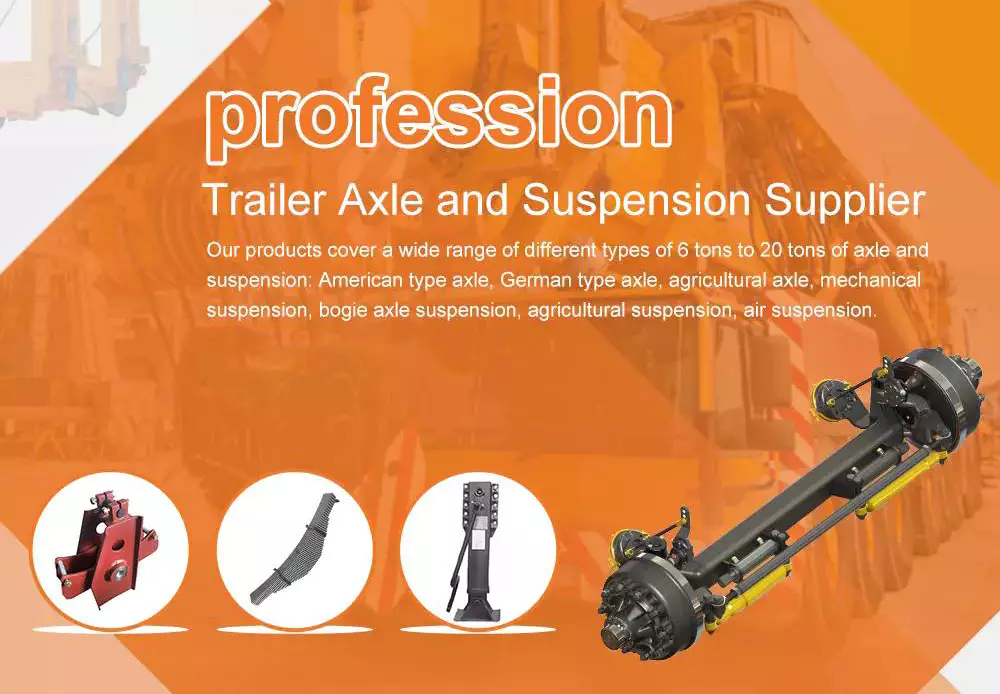
Semi-floating axle
A semi-floating axle is the next step up from a stub axle. Semi-floating axles have a bearing that supports the shaft, which then floats inside the axle casing. These axles are best suited for midsize trucks. They are also lighter than full-floating axles and can be manufactured at a lower cost.
This design is most commonly found on rear-wheel-drive passenger cars and lighter trucks. The semi-floating design also allows for a wider diameter axle shaft, and it can increase axle capacity by increasing the diameter of the axle shaft. It also has a wider offset to accommodate larger tires. It can accommodate any offset, although this is usually only useful in off-road environments.
Semi-floating axles are often made with a tapered end. This helps keep the axel from twisting while providing traction. The rear hub of a semi-floating axle is usually connected to the axel via a big, strong nut. This nut also provides friction on the axel shaft.
A full-floating axle is common in 3/4-ton and 1/2-ton trucks. It is important to note, however, that almost all factory full-floating rear ends use eight-lug wheels. However, this rule is not strictly enforced and some companies, like Czpt, specialize in semi-floating axles and custom axles.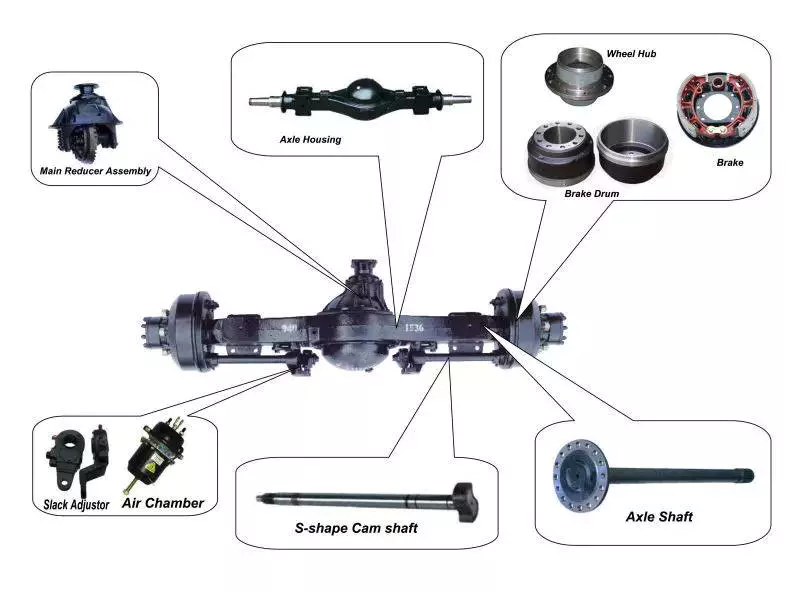
Drive shaft
A drive shaft is an important part of your vehicle’s drivetrain, which helps to transfer torque from the transmission to the drive wheels. You’ll need to know how it functions in order to properly maintain your car. Fortunately, there are a variety of different parts you can use to upgrade your drive shaft.
In order to improve the performance of your vehicle’s drivetrain, you can replace your existing drive shaft with an upgraded one. These are available in various lengths, so that you can find the right length and fit for your vehicle. Some shafts can even be customized to fit the exact length of your axle.
Generally, short axle shafts are made of solid steel. The longer ones are made of aluminum or carbon fiber. To ensure a smooth and safe ride, they are dynamically balanced to eliminate vibrations. Some models are fitted with giubo joints and universal joints to absorb shock. You can also add flex discs to improve your suspension and dampen the bucking sensation of a drive shaft.
You can tell if your drive shaft needs replacement if you hear a clicking noise while driving. This noise is often audible when the vehicle is turning sharply. You should take your vehicle to a mechanic as soon as you hear this noise, or it could lead to a costly repair. In addition to a clicking noise, your car may also be exhibiting a shuddering or vibrating sensation. If you’re experiencing any of these symptoms, you should take your car in for a checkup by an ASE certified technician. If you ignore these warnings, your car’s drive shaft could separate, causing you a lot of damage.
The drive shaft is attached to the axle flange by a drive shaft bolt. This is an important part of the drivetrain because it’s the only point where the drive shaft will connect to the axle. If the bolt is too long, it could be vulnerable to damage if the washers don’t fit tightly. The drive shaft socket yoke can also be easily damaged when you loosen the bolt.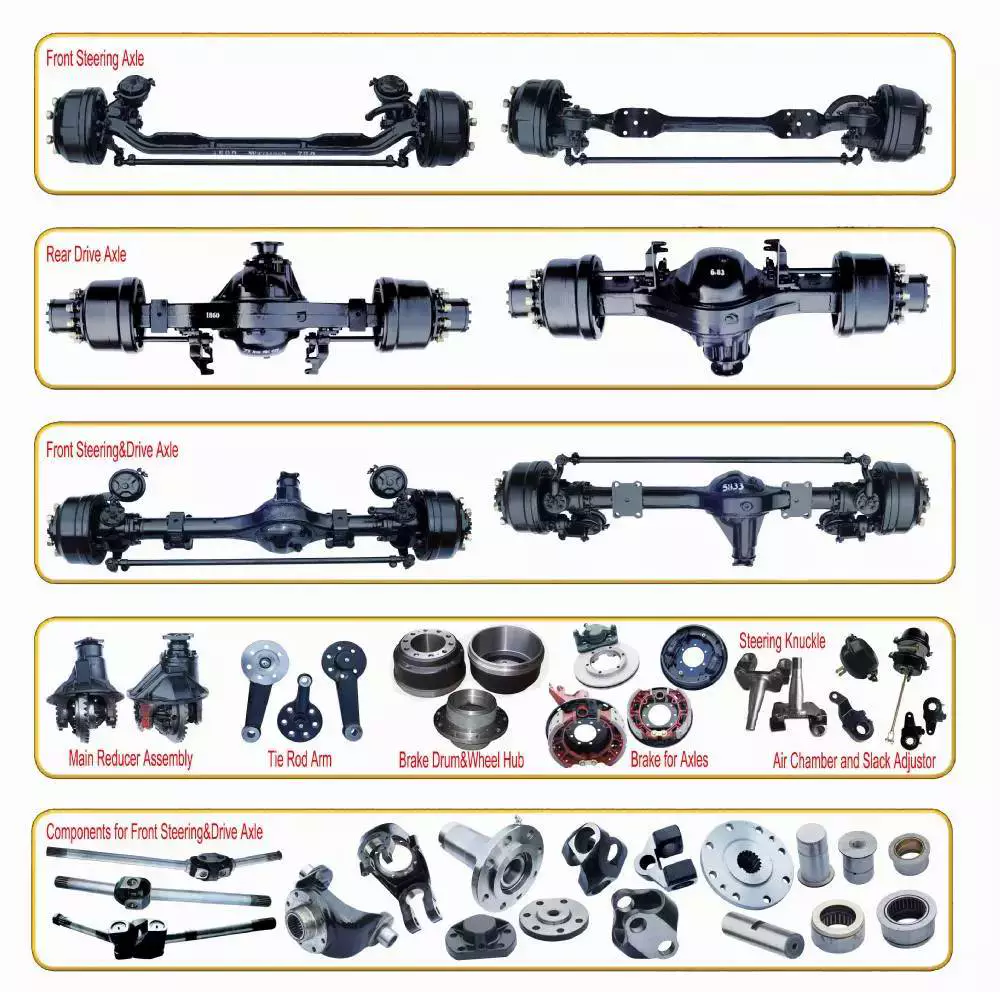
U-joint
When you replace a u-joint on an axle, you need to take a few things into consideration. One of these considerations is the type of grease you’re going to use. Some of these greases are better than others, and you should always check for a quality grease before you install a new one. A good grease can help to reduce the friction and improve the temperature resistance of the part.
It’s also important to check the u-joint itself. This is the joint between the axle shaft and the wheel. If it’s not functioning properly, it could cause further problems. You should inspect the u-joint every time you change the oil in your vehicle. You can test its lubrication by pressing on the tire with a pry bar or axle stands. You can also try turning the steering wheel fully to test if the joint is loose.
A u-joint failure can leave your car inoperable, which can make driving a risky proposition. If the drive shaft loosens and falls to the ground, you could lose control of your car and risk being stranded. In some severe cases, the front of the driveshaft can even drop to the ground and lift the rear of the car, pushing the car sideways. It’s vital to check u-joints regularly, as failure of the u-joint can cause costly and frustrating car repairs.
When you notice a bad universal joint, you should consider getting it replaced immediately. The most common symptom of a bad u-joint is a clunking sound during acceleration and deceleration. You may also hear vibrations when the u-joint becomes worn and you drive the car. If you notice these symptoms, contact a qualified technician to perform a proper diagnosis.

editor by czh 2023-03-09
China 33207634460 16433008 Front Rear Drive Axle Shaft For BMW & Mercedes benz W164 ML W166 W204 W203 W211 W221 X5 E70 R50 F20 F35 E90 supplier
Product: R-Course (W251, V251), GL-Class (X164), M-Course (W164)
Calendar year: 2,,, 2571 0571 6, EFME equipment for Tractors
Vehicle Fitment: Mercedes-Benz
Reference NO.: KME882, ME442, T78401, M2442, ME144L
Size: OEM Normal Size
Content: Metal
Product Quantity: Push shaft
Guarantee: 12 Months
Car Make: for BMW & Mercedes benz
Product Name: Drivershaft
MOQ: 1 Laptop
Good quality: 1 & & & Cylindrical Roller Bearing RN206 NU206 NJ NF206 substantial high quality roller bearing &31608482286
Different Types of Axles
An axle is the central shaft of a gear or wheel. It can be mounted to a wheel or to the vehicle itself, and will rotate with the wheels and vehicle. It may also contain bearings. Some vehicles have different types of axles, including Live, Split, Tandem, and Drop-out axles.
Live axle
A beam axle, also called a rigid axle, is a type of dependent suspension system. It connects a set of wheels lateral to one another. In previous times, beam axles were used in the rear of a vehicle, and later on, as the front axle in four-wheel-drive vehicles.
Live axles are also popular on trucks. They can provide better traction and keep the vehicle at a constant height. This is especially helpful for off-road vehicles. Those vehicles are typically driven slowly and the suspension is not as important as handling and cornering. Nonetheless, some trucks still use this design. It can be a great option if you are looking for a vehicle that handles well.
Live axles have a number of drawbacks. The front end of a live axle can destabilize and affect cornering grip. They also require a means of locating the axle, which may be an issue with heavy or lightweight vehicles. Leaf springs can help in this regard. Alternatively, you can opt for an independent rear axle.
Live axles are a great option for drag racing vehicles. They offer better traction and a better structural base than a conventional full floater axle assembly. They also allow for increased gear life and reduce rear end distortion.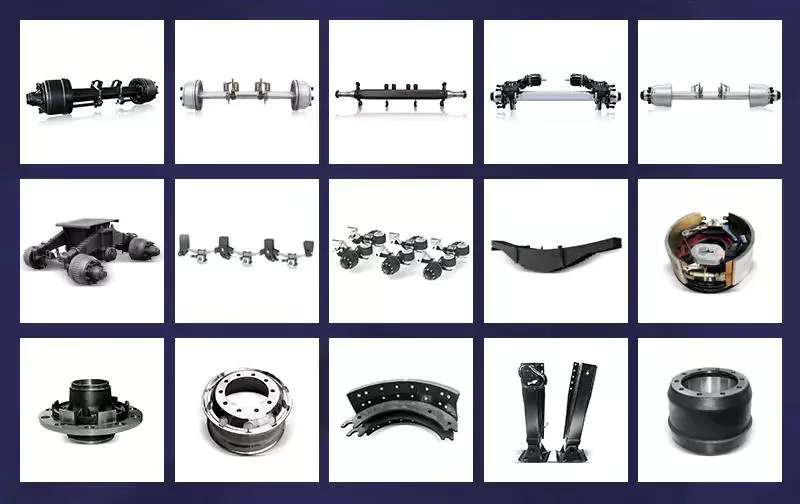
Split-axle
If you aren’t sure how to make split axles, you’re not alone. The process can be very difficult, and the parts can get mixed up. The key is to know how to create the proper alignment for your axles. Thankfully, there are some tools that can make this job a breeze.
Split axles have two components: a bolt head 30 that acts as a stop during relative pivotal movement. The axle assembly 16 is then pivotally mounted between the brackets and the frame. During pivotal movement, the bolt head 30 acts as a stop and prevents the axle from moving too far either way. This is done to maintain the pad 28 at a predetermined compression level. This allows the axle to perform a smooth and consistent drive.
Split axles are a common feature of modern vehicles. This type of suspension system provides greater traction, and it allows the left and right wheels to roll at different speeds. It also prolongs the life of tires, and increases traction.
Tandem
A tandem axle trailer is a great choice for hauling large loads. This style of trailer comes with more features and is more stable. These trailers are usually available in 16′, 18′, or 20′ lengths. They are also available with 8,500, or 10,000 GVW capacities. They are a great choice for hauling large loads on main highways.
Tandem axles are commonly used on trucks. Each axle features a drive mechanism, and are attached to the engine power unit. There are two types of tandem axles, one with a standard differential and the other with a power divider. Drivers may have trouble figuring out which axle is driving the truck at different times, so it is important to understand how each type of axle works.
While there are some common rules that apply to tandem axles, there are also some exceptions. In some cases, a single axle has a lower weight limit than a tandem axle, and the two axles must be at least 40 inches apart.
Drop-out
Drop-out axles are used to connect the dropouts of a bike frame. When using dropouts, make sure the distance between the axles is 110mm. Then use a clamp to squeeze the dropouts together. Make sure to measure both dropouts carefully, because a 1mm difference in the width can cause a lot of trouble.
The 9″ drop-out axle was produced from the late 1950s to 1986. They were made in trucks and cars, but not in motorcycles. To use this axle in a 1990 LTD CV, you will need to make several modifications to the mounting of the axle and connection to the drive line. You will also need to consider installing a parking brake. Moreover, this axle is not compatible with the Panther platform. In fact, the drop-out axle is available in several variations.
Drop-out axles are also known as single-speed. The lower part is called the semi-horizontal dropout, while the upper part is called the vertical dropout. This dropout includes an eyelet for mounting a fender or rack.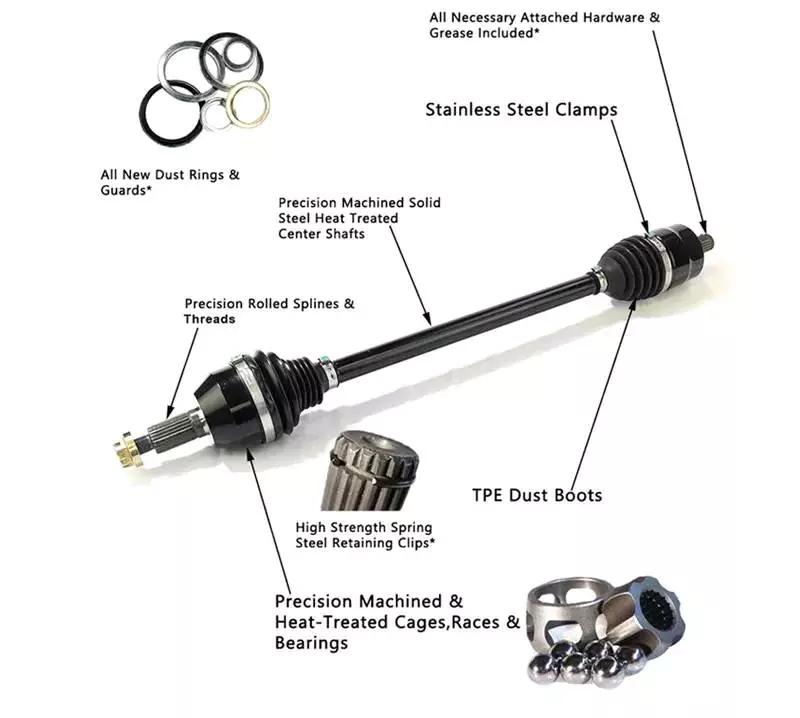
Czpt
The Czpt axle is a popular choice for a wide variety of vehicles. Initially used in heavy-duty pickup trucks, it was eventually adopted by all major automakers in the U.S., including Ford, Dodge, and Chrysler. It also became popular as a front differential on 4WD vehicles.
Czpt axles are easy to recognize, and the numbering system is consistent regardless of the vehicle model. The axle’s model number is found on the right lower web of the housing near the pinion yoke. It is also stamped on the axle tube. If you can’t find the axle model number, you can find it on Czpt’s website.
Czpt axles are also recognizable by their Bill of Materials (BOM) number. This is like a vehicle’s VIN number, and it identifies the axle’s gear ratio, model number, and component parts. A Czpt axle’s BOM number starts with 60 or 61.
The Czpt axle is the most common axle size in Jeeps. The Czpt 30 axle is the standard, and can be found on most Jeeps. The YJ version of this axle uses a reverse cut ring and pinion, while the TJ version does not. It is made from 5×4.5 inch bolts.
Universal joint
A universal joint is a component that connects two wheels to one another. This component is made to replace worn out or damaged parts on axles. They are also used to repair and replace brakes and drive shaft yokes. The universal joint can be purchased at an auto parts store or online. To replace a universal joint, you need to remove the axle shaft and the front brakes.
The universal joint is a flexible pivot point that transfers power between two shafts. In order to work properly, it must be flexible enough to compensate for changes in the driveline angle. These changes may be due to changing terrain. The universal joint is an important part of the driveline. It is used in both manual and automatic transmissions.
A universal joint should be serviced regularly to maintain its performance. If your universal joint squeaks while driving, it is a sign that it needs to be serviced. A lubricant can help extend the life of a u-joint.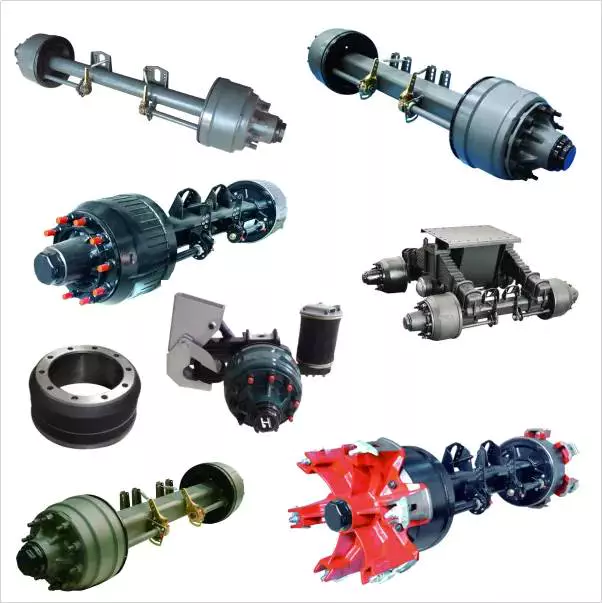
Spindle
Your vehicle’s axle consists of two main components: the hub and the spindle. The spindle rides on the hub, which can become damaged or lose its shape when it hits something. The spindle is also prone to wear from high mileage, and its threads can be damaged. If you suspect that your spindle needs to be replaced, there are several options available.
Axle spindles can be installed in one of three ways. The typical assembly includes bolted spindles on the ends of a tubular axle. The axle is then suspended by springs. Another type of mounting involves a torsion beam on the axle leg, which acts as a spring. It flexes and bends to provide the turning motion. The axle spindle can be a replacement part for your trailer, and there are towing supplies and professionals who can do it for you.

editor by czh 2023-02-27
China for Raptor 700 700r 1s3-25381-10-00 ATV All-Terrain Vehicle Parts Other Motorcycle Accessories Rear Wheel Axle Shaft with Hubs axle differential
Product Description
For Raptor 700 700R 1S3-25381-10-00 ATV All-Terrain Vehicle Parts Other Motorcycle Accessories Rear Wheel Axle Shaft With Hubs
| Product Name | ATV wheel hub | Color | Silver |
| SKU | YH-RPT-700-043 | Size | As like the picture shown |
| Fitment |
Refence the list |
Weight | 3.05kg |
Description:
-Condition:100% brand new
-easy to install
Please check if the item Replacement for your car below description before purchasing
Rear Wheel Axle Replacement for Raptor 700 2006-2018 /Raptor 700R 2009-2018
Made of high quality Steel, it is durable
Easy to install;OEM number:1S3-25381-10-00
Quantity included:
1 Pcs Rear Wheel Axle
Note:
*Please read all description & fitment before ordering the product.
Fitment:
for Raptor 700 2006-2018 /Raptor 700R 2009-2018
(Please Ensure This Part Fits For Your Motorcycle Before Order)
YHMOTO has been adhering to the concept of “Born To Custom” in pursuit of quality since its establishment.The company establish on 2015. We have 4 production lines to meet the needs of different customers for customization of different materials and craftsmanship. They are CNC processing production lines, injection molding, stamping molding, and electronic assembly. Tested, we have the ability to provide OEM/ODM services to our customers. The factory covers an area of 1,200 square meters and has an office to receive customers. We can modify for Harley Honda CZPT BMW Suzuki aftermarket new parts. We have more than 6000 SKU products, the series are divided into retro car series, street car series, cruise car series, ATV and UTV series, off-road car series, outdoor product series.
HangZhou XIHU (WEST LAKE) DIS. TRADING CO,LTD
| Certification: | ISO9001, CE, CCC, RoHS |
|---|---|
| Material: | Steell |
| Type: | Wheel Shaft |
| Qty: | 1 |
| Color: | Silver |
| Transport Package: | Box |
###
| Samples: |
US$ 70/Piece
1 Piece(Min.Order) |
|---|
###
| Customization: |
Available
|
|---|
###
| Product Name | ATV wheel hub | Color | Silver |
| SKU | YH-RPT-700-043 | Size | As like the picture shown |
| Fitment |
Refence the list
|
Weight | 3.05kg |
| Certification: | ISO9001, CE, CCC, RoHS |
|---|---|
| Material: | Steell |
| Type: | Wheel Shaft |
| Qty: | 1 |
| Color: | Silver |
| Transport Package: | Box |
###
| Samples: |
US$ 70/Piece
1 Piece(Min.Order) |
|---|
###
| Customization: |
Available
|
|---|
###
| Product Name | ATV wheel hub | Color | Silver |
| SKU | YH-RPT-700-043 | Size | As like the picture shown |
| Fitment |
Refence the list
|
Weight | 3.05kg |
How to Repair an Axle
An axle is the central shaft of a gear or wheel. The axle can be fixed to the wheels or the vehicle itself and rotates along with them. The axle may include bearings. This article discusses the different types and their functions. It also covers how to repair an axle. In addition to its function, an axle may include mounting points and bearings.
Structure
An axle is a part of railway machinery that helps move trains. It is made up of a cylinder and a system of springs. The axle is positioned near the center of the train’s wheels and is connected to the frame and wagon. Axle box bogies are used in economic trains.
Axles can be integral or detached, depending on the type of vehicle. An integral axle is the central part of the suspension system and supports the weight of the vehicle. A disengaged axle has two wheels on opposite sides. In a vehicle with independent suspension, the axles are matched together with independent suspension. Different types of axles are designed for different purposes, so it’s important to understand which type of axle is used for the vehicle you’re driving.
A conventional axle assembly consists of the hub assembly 10, brake disk 20, wheel bearing assembly 30, and knuckle 40. It also has a hub bolt 14. The wheel bearing assembly 30 is made up of the bearing 32, outer ring 36, and bearing connecting bolt 38. The wheel bearing assembly is connected to the hub using a hub.
The type of axle used in a vehicle is determined by the type of driving force that the axle is expected to deliver. Some vehicles use standard axles while others have custom-made axles to meet their specifications. This allows for better control over the wheels’ speed and torque. These differences can greatly affect the performance of your vehicle.
Full-floating axles are most common in light, medium, and heavy-duty trucks. These axles can handle more weight than their semi-floating counterparts. They also prevent the wheel from coming off in case of axle failure. Full-floating axles are used in some Land-Rover vehicles and are used in American stock car racing. In addition, full-floating axles help maintain wheel alignment and handle side thrust and driving torque.
The structure of an axle assembly comprises an input shaft, a brake disk, and the hub. The input shaft is connected to the drive pulley.
Function
Axle springs are used to support the axle. The spring rate depends on the amount of load applied to the axle. The position of the axle can be determined by detecting signals produced by a position sensor. The sensor detects a change in distance between the axle body and the chassis. The spring rate is then adjusted to provide the required level of deflection.
The differential between the spring supported and unsprung axle suspension can lead to dangerous operating conditions. An operator may not always be aware of the occurrence of a switch from spring-supported to unsprung condition, and may overtax the vehicle as a result. Thus, the proper operation of axles depends on a thorough understanding of axle functions.
The Michigan DOT study used mechanistic models and laboratory studies to develop axle factors. These factors describe the relative damage caused by a single distress to a standard axle. They were used to adjust the AASHTO-based LEFs for single axle weights and to derive new LEFs independent of ESALs.
Models for estimating service lives are based on the work of Timm et al. for the FHWA. These models assume accurate axle loading spectra and a small number of tightly defined scenarios. This greatly simplifies the task of estimating LEFs and improves the accuracy of results.
The MEPDG version of the model supports the NAPCOM and PaveDAT models. They show a considerable variation in the effects of different axle weights on various metrics of pavement condition. This is because different axle weights can cause different results in different sections, if they are associated with two failure mechanisms.
Types
There are many different types of axles, each with their own characteristics. The most common of these is the Ford 9-inch axle, which is found in most Blue Oval muscle cars and trucks. It is so popular that aftermarket companies even make versions for Chevy applications. This particular type of axle features a 3/8-inch square-drive fill plug and is reinforced with a Daytona-style pinion cartridge, which accommodates a stronger pinion head bearing and thicker inner ribbing.
Another type of axle is the rigid front axle, which uses leaf springs to provide suspension. These springs are fixed to spring seats on the axle beam. The axle beam and track rod are connected to each other using screws. The length and thickness of the axle tubes are important for the strength and performance of the axle.
The rear axle is responsible for transferring power to the driving wheels. The front axle, on the other hand, is responsible for processing road shocks and steering. The driving torque produces thrust in the wheels. This force must be transmitted to the chassis frame and body to move the vehicle. These are the most affordable types of axles, but they can also lead to problems.
While many axles are manufactured in standard formats, many of them are custom-made for a particular car, allowing for a more individualized look and performance. In addition to being custom-made for the vehicle, axle housing cases can be either a single unit or split like a banjo. The front opening of the axle housing is closed by a differential carrier, while the rear opening is covered by a spherical cover plate.
Different types of axles have different strengths and weaknesses. Typically, the weight of an axle should be proportionate to the vehicle’s weight and the pressure it will exert on the road. When the axle weight is higher, a vehicle will not be as efficient, as it will use more fuel to move at the same speed. This can cut into profit margins.
Different types of axles can have various purposes, but one main function is to transfer power from the engine to the wheels. These axles need to be durable and able to withstand the weight of a vehicle, as well as withstand accelerated forces.
Repair
If you notice any signs of wear or damage to the axle on your vehicle, you may need to repair it. This type of repair will not only protect the wheels, but will also increase the overall performance of your car. A good repair job can help you enjoy smoother driving and better control of your tires. However, there are certain precautions you must take before starting the repair.
To fix an axle, a mechanic must first determine the cause of the problem. This can involve replacing worn or broken parts, replacing them with new ones, and adjusting the car’s alignment. The mechanic will then tighten the fasteners and tires according to manufacturer specifications. Finally, the car will be road tested to ensure that everything is working properly.
A CV joint is also a common item to be replaced. The lubrication in these joints can become dirty, which causes them to wear out. A failing joint will make a clicking sound when it turns sharply. A failed joint may also affect the differential. This part of the car’s drivetrain contains a set of gears that transfer the rotational power of the engine to the wheels. Over time, the gears can wear out, resulting in high labour and replacement costs.
If your car has bent axles, it is important to repair them as soon as possible. Even if the damage is slight, the problem can lead to additional damage to your car’s wheels, CV joints, or other powertrain components. Thankfully, some insurance policies cover the cost of axle repair after an accident.
The average cost to repair an axle varies from about $450 to $900 before taxes. The cost depends on the size of the vehicle and the type of labor required. A rear axle repair can cost up to $700. In addition to labor fees, parts can cost as little as $50 to 70. The cost of the repair can also vary depending on the type of vehicle and the parts used.
If you notice bad vibrations in your vehicle, it’s likely that the axle has been damaged. These vibrations can cause problems with the handling of your vehicle and your comfort while driving.

editor by czh 2022-12-06